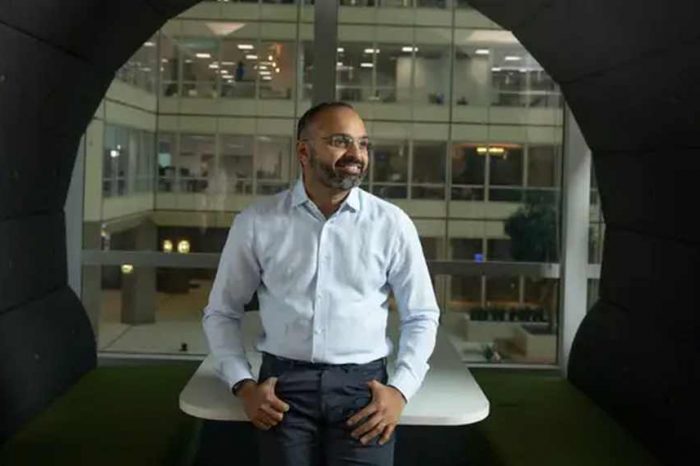Top tech startup news for Wednesday, February 1, 2023: Dxcover, Match, MNT-Halan, ONE, OpenAI, Risilience

Good evening! Below are some of the top tech startup news stories for today, Wednesday, February 1, 2023.
Tinder parent company to lay off 8% of its staff as growth slows
Match Group announced on Wednesday that it is laying off about 8% of its workforce, or about 200 employees as an economic slowdown hits the dating app space. Match Group now joins a growing list of other tech and internet companies that have laid off employees as part of the broad measure to rein in costs and stay afloat to weather the ongoing recession storm.
Spending on its dating apps in the US has slowed in recent months as inflation takes a toll on millions of Americans. In an email to employees, Match said the cuts were mainly in areas such as recruiting. The company added that the job cuts have already taken place in the United States and they’re now being implemented in other countries.
Match also gave a flat quarterly revenue forecast a day earlier that it blamed on a tough economy, a strong dollar, and “significant” poor product execution at Tinder, Reuters reported. The other problem is the product rollout delays that have also hit its Hinge app at a time when the company faces stiff competition from rival Bumble Inc.
Match now joins other tech companies that have announced layoffs in recent weeks. Just last week, Microsoft also said it would lay off 10,000 jobs instead of the 11,000 reported by major news outlets. In addition to the layoff, the Redmond-based company also said that it would take a $1.2-billion charge as its cloud-computing customers dissect their spending and the company braces for a potential recession. The layoff is far larger than the 1,000 job cuts the company announced back in October 2020.
In January, more than 241 tech companies laid off 77,916 tech workers, according to Layoffs.FYI, a site that has been tracking all tech layoffs using data compiled from public reports.
Egypt FinTech startup MNT-Halan raises $400M, making it the largest funding in Egypt and the Middle East
While tech startups in the United States and Europe are still struggling to raise new funding due to the ongoing economic slowdown, fintech startups in the Middle East and North Africa (MENA) region continue to thrive as they empower and democratize finance for customers and underserved SMEs.
In a sign of healthy funding growth in the region, MNT-Halan, an Egyptian fintech and e-commerce ecosystem which serves underbanked and unbanked customers in North Africa, announced today that it has raised up to $400 million in equity and debt financing, making it the largest funding in Egypt and the Middle East in the past year. The latest funding now puts the company at a post-money valuation of over $1 billion, making it a member of our highly-coveted 2023 unicorn startups.
The round, which was backed by local and global investors, includes $260 million in equity financing and $140 million through two securitized bond issuances secured within the past year. A large chunk of the money came from Chimera Abu Dhabi which invested more than $200 million in equity in exchange for over 20% of the company.
MNT-Halan will use the funding proceeds to accelerate its growing loan book, considering the increasing demand in light of the current inflationary environment. MNT-Halan has the capacity to further securitize up to $250 million in its securitization program.
Founded in 2017 by CEO Mounir Nakhla and Ahmed Mohsen, MNT-Halan is one of Egypt’s fastest-growing fintech companies committed to bringing seamless financial services to the unbanked and underbanked customers in Egypt and the surrounding region. MNT-Halan’s digital ecosystem includes business loans, consumer finance, payments and e-commerce, all of which are backed by Neuron, the company’s proprietary technology.
Scotland-based diagnostics startup Dxcover raises $11.9m in Series A and grant funding to accelerate liquid biopsy to market
Dxcover, a Glasgow, Scotland-based clinical-stage diagnostics startup has raised $11.9 (£9.7) million in Series A and grant financing. Dxcover will use the funding to support its ongoing development of the Dxcover Liquid Biopsy Platform for the detection of early-stage cancers, including brain and colorectal cancers.
The Series A of $9.25 (£7.5) million was led by existing investors Eos Advisory LLP, Mercia Asset Management PLC (from Mercia EIS Funds and Mercia Knowledge Intensive Impact Fund), Scottish Enterprise, University of Strathclyde, SIS Ventures and Norcliffe Capital. Boston-based life science investor Mark Bamforth of Thairm Bio also joined the round as Dxcover continues to develop its U.S. network. Dxcover received a grant of $2.7 (£2.2) million from the European Innovation Council, following a rigorous competitive process.
Founded in 2019 based on the research of its Chief Technical Officer, Prof. Matthew J. Baker, Dxcover is a clinical-stage liquid biopsy company developing tests for the early detection of multiple cancers, when treatment has a better chance to impact outcomes.
The company has pioneered the early detection and identification of cancer by infrared spectroscopy of circulating pan-omic biomarkers. The company has generated compelling clinical data with high accuracy detection of Stage I and Stage II cancers. Dxcover is based in Scotland, United Kingdom, and is expanding its network in Europe and the USA.
Climate Analytics startup Risilience bags $26M to help global businesses transition to the low-carbon economy
Risilience, a climate analytics startup founded out of the University of Cambridge, today announced it has raised a $26 million Series B funding round to expand its market-leading SaaS platform to serve clients at any stage of their decarbonization journey. The round was led by Quantum Innovation Fund, alongside existing investors IQ Capital and National Grid Partners.
Risilience will also use the fresh capital infusion to drive international expansion, with a specific focus on the US where pending SEC rules will require climate and risk disclosures.
Risilience was spun out of the Centre for Risk Studies at the University of Cambridge Judge Business School after identifying a growing need for science-based climate analytics. The Risilience platform turns data into actionable insights, empowering organizations to understand and quantify the scope, magnitude, and timescale of climate risk to their strategies and operations. This allows companies to measure and balance the potential financial impacts with the cost of transitioning their business to operate more profitably in a low-carbon economy.
Risilience works with some of the enterprise world leaders in transforming themselves for the low-carbon economy, including Nestlé, Burberry, Coca-Cola Europacific Partners, Reckitt, easyJet, and Tesco.
Risilience’s ‘digital twin’ technology enables businesses to stress test the impact of numerous transitional and physical risks on their organization including increasing regulation, potential litigation, and changing consumer sentiment, which together could reduce business value by up to 30 percent if companies fail to act.
EV battery startup ONE raises $300M to develop batteries with a 750-mile driving range; now valued at $1.2 billion
Michigan-based battery startup Our Next Energy (ONE) has raised $300 million in Series B funding. The latest round now puts the company at a valuation of $1.2 billion, making the three-year-old startup a member of the highly-coveted unicorn club.
The latest round, which was led by prominent investors including Temasek, Coatue, Riverstone Holdings, AI Capital Partners, and Sente Ventures, also makes Our Next Energy one of the most valuable privately held battery companies in the United States. The Series B round also included an earlier $62.5 million convertible note closed with BMW iVentures, Assembly Ventures, Breakthrough Energy Ventures, Volta Energy Technologies, Flex and Coatue.
The news comes a year after the company announced it had successfully tested a prototype of its new battery that gets a 750-mile driving range in the Tesla Model S before recharging. ONE’s battery combines a structural cell-to-pack design that uses cobalt- and nickel-free cathodes, with a second, high-energy pack that can recharge the first. ONE said the testing was done in a road test across Michigan in late December, at an average speed of 55 miles per hour.
Founded three years ago by 30-year industry veteran Mujeeb Ijaz, ONE said the company has demonstrated technologies that can double the range of electric vehicles. In addition to improving range, ONE said the company is also focused on lowering the cost with cobalt-free chemistries that don’t pose a thermal runaway risk.
The startup is currently delivering prototype versions of its Aries I battery pack to several companies for testing. In an interview, Ijaz said the company aims to begin producing Aries II lithium iron phosphate cells next year at a new factory in Van Buren Township in southeastern Michigan.
OpenAI launches a $20 per month subscription plan as ChatGPT reached 100 million monthly active users in January
ChatGPT took the internet by storm late last year as the dialogue-based AI chatbot crossed one million users just five days after its launch. Now ChatGPT creator OpenAI announced on Wednesday it is launching ChatGPT Plus, a $20 per month pilot subscription plan for its popular AI-powered chatbot.
The announcement comes this day UBS reported that ChatGPT reached 100 million monthly active users in January, just two months after launch, making it the fastest-growing consumer application in history, Reuters reported. According to a UBS study on Wednesday, UBS analysts wrote in the note: “In 20 years following the internet space, we cannot recall a faster ramp in a consumer internet app.”
The report, citing data from analytics firm Similar Web, said about 13 million unique visitors used ChatGPT per day in January, more than double the levels the company had back in December 2022.
Just five days after its launch, ChatGPT crossed one million users, according to a post by Open AI co-founder Sam Altman. To put that in perspective, it took Netflix 3.5 years, Facebook 10 months, Spotify 5 months, and Instagram 2.5 months to reach the one million users mark. It took about nine months after its global launch for the popular short video app TikTok to add 100 million users.




